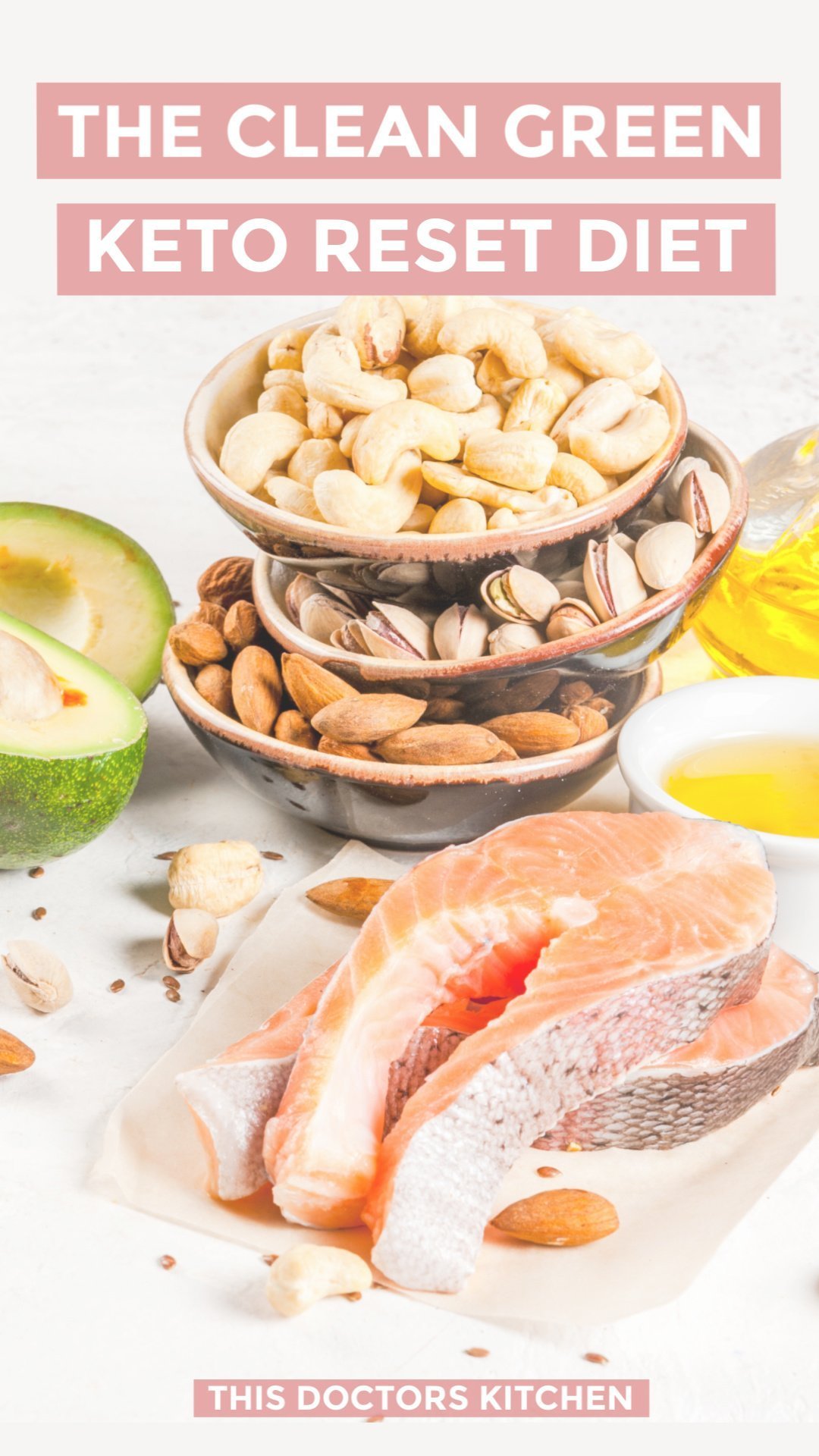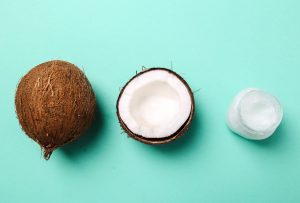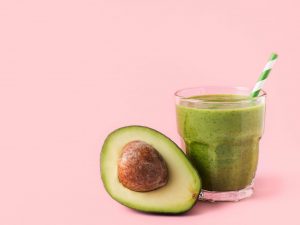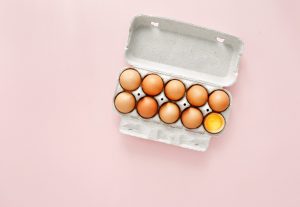The Clean Green Keto Reset
May 10, 2019 By
Sarah White No Comments

The Clean Green Ketogenic Reset: Balance blood sugar levels & improve your metabolism in only 20 days.
My favourite way to reset after a holiday is to follow a strict ketogenic diet for 20 days. This is an excellent and delicious way to improve insulin sensitivity and shed a few extra pounds after a few weeks of indulgence. While a long term keto diet can be difficult, and isn’t recommended for everyone, a short 3-week keto reset is achievable and can lead to some truly amazing health benefits. Today’s post will teach you how to do your own clean keto-style diet for a healthy transition into this new season.
What is the Keto Diet?
The ketogenic diet is a high-fat, low-carb diet that helps to control weight and improve insulin response. Ketogenic comes from the word ketones (keto = ketone / genic = producing). Ketones are water-soluble molecules that are formed when the body uses fat for its main source of energy. When eating a carb-heavy standard North American diet your body will always preferentially use carbohydrates for fuel. The goal of the keto diet is to eat a very low carbohydrate diet which forces the body to use fats as it’s primary fuel source. To attain ketosis, you need to eat a diet that is very low in carbohydrate and high in healthy fats. This means that your diet should be based mostly on plant and animal fats, and green vegetables.

Why Do a Keto Reset?
In a recent study, subjects who ate a ketogenic diet for 20 days, followed by a low carb diet for 20 days experienced and sustained significant weight loss and blood sugar regulation. In order to understand why this happens you need to know how your body maintains normal blood sugar levels. There are two hormones that control blood sugar, one is insulin and the other is an opposing hormone called glucagon. They antagonize one another, meaning that they can’t coexist at high levels in your blood stream. Insulin is your fat-storing hormone which is secreted in large amounts when we eat carbohydrates, while glucagon is considered a ‘fat-burning’ hormone and is active during periods of fasting or low-carbohydrate dieting. If you’re eating carbohydrates throughout the day your insulin levels will remain elevated and you will never tap into the power of the fat-burning glucagon hormone. By taking a break from the insulin-sugar roller coaster ride you can effectively retrain your body to release less insulin thereby upregulating glucagon production.
Why Clean Keto?
It turns out that going keto isn’t quite so simple: There’s a clean and healthy way to do it and then there’s a ‘dirty way’. While fried cheese, processed meats and aspartame-sweetened treats may get you into a state of ketosis they are by no means a part of any healthy diet. Though technically keto-friendly, ‘dirty’ keto foods lack vitamins and minerals, and are full of preservatives and hormones which will slow your weight loss goals and negatively impact your overall health. The Clean Green Keto Reset diet involves eating whole organic foods from quality sources, like grass-fed beef, free-range eggs, wild-caught fish, nuts, seeds and plenty of vegetables.

How-To Clean Green Keto:
- Track Your Macros: This ketogenic diet plan requires tracking the carb amounts in the foods eaten and keeping carbohydrate intake under 50 grams per day. I like to use apps like ‘my fitness pal’ or ‘carb watcher’ to monitor macronutrient levels through my 20-day reset.
- The nutrient intake on a ketogenic diet typically works out to 70-75% of calories from fat, 20-25% from protein, and 5-10% from carbohydrates.
- Eat Organic: Eat only whole, unprocessed organic foods throughout your 3-week reset. Eating a high fat diet can put strain on the liver since this is where dietary fat is processed. Adding hormones and antibiotics from conventional dairy and meats along with pesticides and chemicals from produce and packaged foods will only make it more difficult for your liver to create ketone bodies. A Clean Green approach to the keto diet supports liver health while promoting optimal ketone body formation.
- Eat 5 servings of dark leafy greens daily: Kale, spinach, arugula and fresh herbs are all nutrient-dense, low carbohydrate foods that will support your overall health while allowing you to remain in ketosis throughout the next 3 weeks. Add a handful of fresh herbs to your omelettes or smoothies and include some steamed greens or a large salad with every meal. A clean sugar-free greens powder can also be used to ensure that you meet your daily green requirements while on a short-term keto diet.
- Stay Hydrated: Your kidneys require a large amount of water for the filtration of waste and toxins from the blood stream and their excretion via urine. Under typical conditions an average adult requires 1.5 to 2.0 L of water daily to clear a body’s normal solute load of 900 to 1200 mOsm per day. Ketone bodies are natural diuretics which causes more water to be flushed through the kidneys. This is why I recommend that my patients drink around 3L of water daily while following a 20-day reset. You can also add a sugar-free electrolyte supplement to your reset. Electrolytes like magnesium, potassium and sodium are important to replenish any loss through the diuretic effects of ketones so I recommend adding 1 – 2 scoops electrolyte powder to your water daily. Keep in mind that the body will need even more water on hot days and after physical exercise.
- Love Your Liver: The ketogenic diet can put a strain on the liver due to the extra fat being processed through liver’s detoxification mechanisms. While green veggies are helpful at keeping your liver happy most people need a little extra liver love while taking on a keto reset. These are my top tips:
- Drink Lemon Water: Lemons are a low-carb fruit that contain a compound called Limonin, which has been shown to reduce markers of liver damage and oxidative stress in response to toxins. Simply squeeze the juice from 1/2 a lemon in 1 cup warm water and drink upon waking to stimulate liver detoxification and promote digestive function.
- Eat Bitter Greens: Bitter greens like milk thistle, dandelion and parsley give the liver a boost in converting nutrients and removing toxins. As a bonus, bitters also stimulate the flow of bile, which improves digestion of fats. Drink a few cups of milk thistle tea daily or throw some parley or dandelion greens into your daily salad.
- Create More Glutathione: Glutathione is your body’s most powerful antioxidant and detoxifying agent. It is created by the liver, and it has been shown to support the production of the liver enzymes that break down toxins. The following foods can support glutathione production: garlic, onions, asparagus, avocados, brussels sprouts, cabbage, cauliflower, kale, parsley and watercress, curcumin, and cinnamon.
- Add Some Fish Oil: PUFAs from Omega 3 supplements can help you get into ketosis more quickly. Eat wild caught organic fish as often as possible and supplement with a clean fish oil on days when seafood isn’t on the menu. Look for 3rd party tested, high-quality fish oil to avoid rancidity & heavy metals. Your EPA:DHA ratio should also be around 3:1.

Clean Green Keto “Yes” Foods:
- Fresh organic meats: Look for meat that’s labeled as free-range, organic and grass-finished to ensure that you’re getting the highest quality protein possible. It’s also important not to eat too much protein while on a keto diet; a common mistake made by a lot of my patients who are “doing everything right” but still not losing any weight. Most people don’t actually know that too much protein can throw your body out of ketosis. It’s pretty complex and ‘sciencey’ but I’m going to try and break it down to make it a little easier to understand. In order to make energy while eating a regular diet the liver pairs two molecules, acetyl-CoA + oxaloacetate in a process called the Krebs cycle to produce energy (aka ATP). Without oxaloacetate, the acetyl-CoA is used in an alternative pathway called beta-oxidation in order to create ketones. While carbs are the primary donor for the Krebs cycle, protein can be converted oxaloacetate in the absence of carbohydrates, which is the reason why eating too much protein can inhibit ketosis.
- Tip: It’s better to leave the skin on your poultry and the fatty trim on your red meat in order to increase the fat content. Only do this with organic meat since animals store toxins in fatty tissue.
- Fish and Shellfish: Wild caught fatty fish like sardines and salmon are your best bets while on a keto diet. Avoid canned fish which is typically preserved with added sugar and contains a ton of heavy metals.
- Coconut Oil: Coconut oil is an excellent option while on the ketogenic diet because it increases natural formation of ketones due to it’s high (66%) MCT content. I start every keto reset day with an organic cup of coffee + 2 tsp MCT oil. The exogenous ketones from the coconut oil are a great way to quicken ketogenesis and sustain energy while ‘fasting’ in the morning.
- Eggs: Many keto recipes call for eggs since they’re a perfect ratio of fat & carbs. As a passionate chicken advocate I must insist on only free-range, grass fed, organic chicken eggs. Not only are they better for you (they contain more anti-inflammatory omega 3 than traditional eggs) but they also ensure that the chickens providing the eggs are well cared for and humanely treated.
- Organic Cheese: If well tolerated, cheese can be a suitable option on your clean green keto plan as long as it’s coming from an organic and less-processed source. Sheep & goat cheeses tend to be safer bets since they typically contain less lactose while having higher amounts of naturally occurring fats. You can find delicious raw organic cheeses in the cheese section of Organic Garage or Whole foods in Oakville.
- Organic Vegetables: Vegetables will be the source of most of the carbs you eat over the next 3 weeks, but you still need to choose the lowest carb vegetables possible in order to stay under 50g carbohydrates. Green leafy vegetables are your best bet including spinach, lettuce, kale and cabbage. You can also eat broccoli and cauliflower, celery, cucumber, asparagus, bean sprouts, radishes and more, but try to limit intake of sugary vegetables like peppers and tomatoes, and avoid starchy vegetables like potatoes and corn.
- Nuts & Seeds: Nuts and seeds are a great choice on a clean keto diet. If you typically find them hard to digest try soaking them overnight first to activating some of their enzymes and decreasing lectin content. Throw some nuts into your smoothie or sprinkle onto a fatty salad with some olive oil to make sure you’re reaching your daily healthy fat macros.

Dirty Keto “No” Foods:
- Processed meats: Processed meats like hotdogs and deli meats are always always a no. Full stop.
- Non-organic meats and eggs: They are full of antibiotics and hormones that will hinder your healthy weight loss goals.
- Packaged keto treats & snacks: There are a handful of exceptions available on the market but the majority of processed keto foods contain blood sugar distrusting chemicals that are difficult to process through the liver. Stick with homemade snacks and treats for the duration of this reset, it’s only 20 days you guys, I believe in you!
- Conventional dairy products: Processed dairy causes an increase in a protein called insulin like growth factor or IGF-1 which messes with hormones like insulin. Stick to whole unprocessed dairy whenever possible from clean sources like goat & sheep.
You can check out my blog This Doctor’s Kitchen for my favourite keto recipes. And if you’re interested in a personalized keto reset plan you’re welcome to book an appointment here for some additional support.
References:
This information is not intended as a substitute for the advice provided by your Naturopathic doctor or primary care physician. Do not use the information in this document for diagnosing or treating a health problem or disease. Always speak with your Naturopathic doctor before taking any medication or nutritional or herbal or using any treatment for a health problem. If you have or suspect that you have a medical problem, contact your health care provider promptly. Do not disregard professional medical advice or delay in seeking professional advice because of something you have read online.





